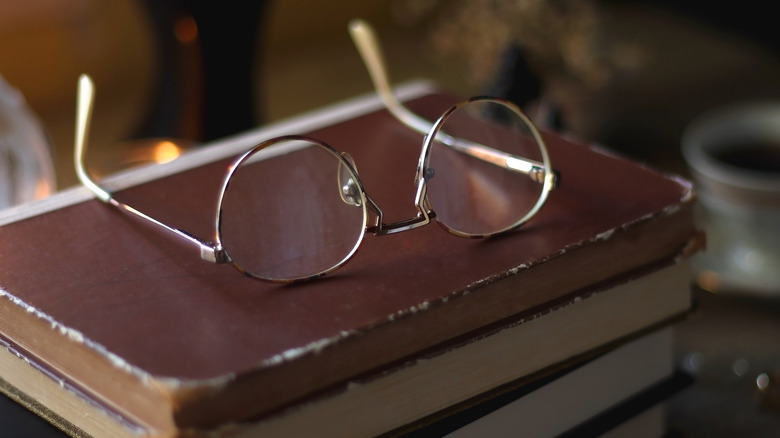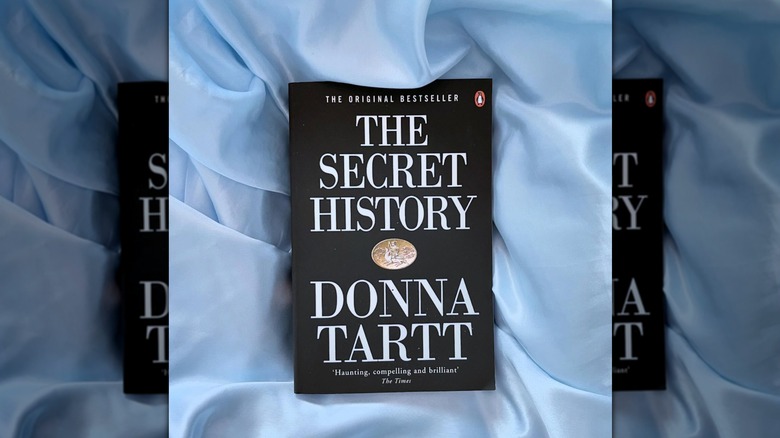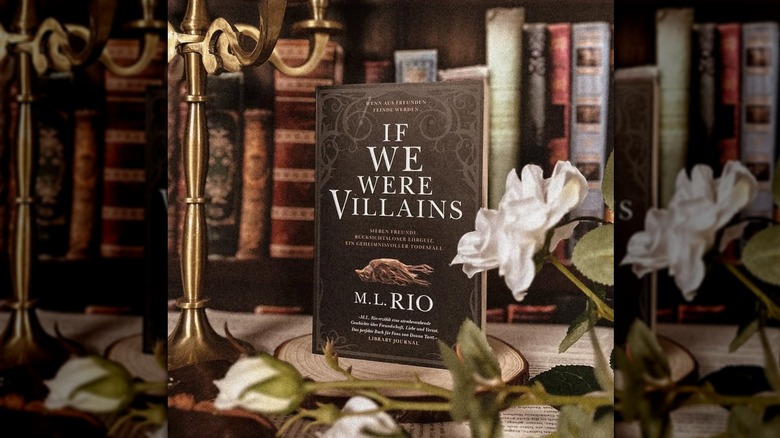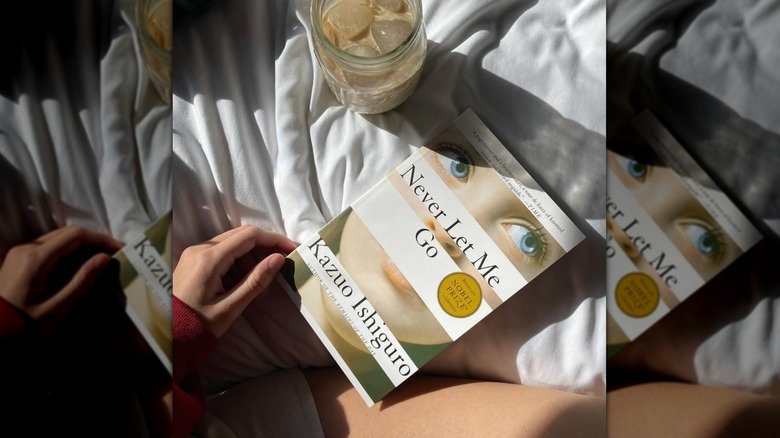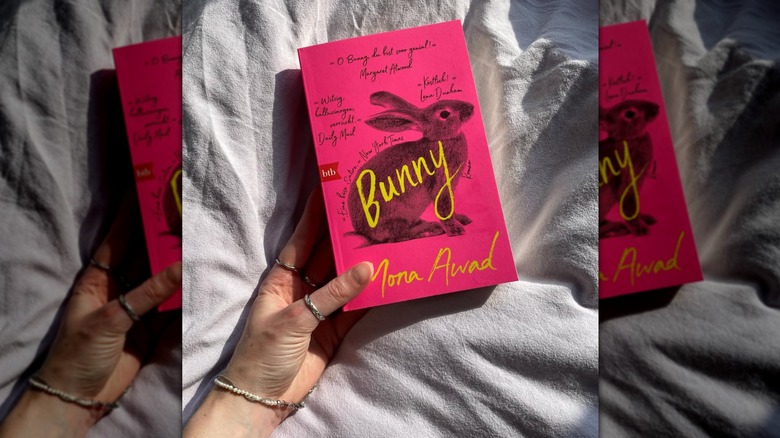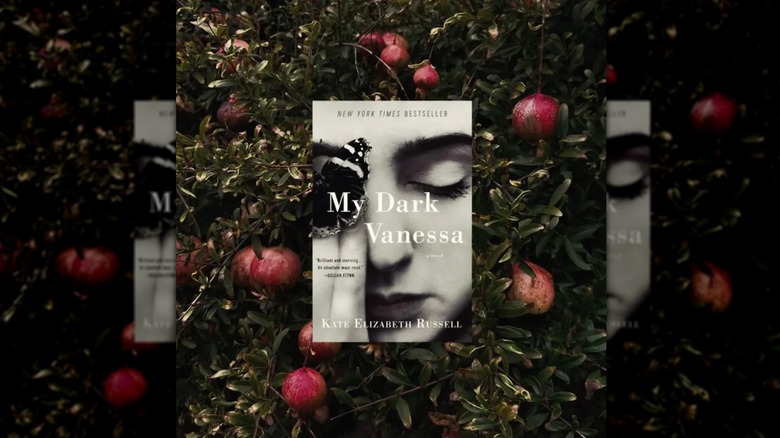The Best Dark Academia Novels To Add To Your Book Club Reading List
We may receive a commission on purchases made from links.
Originally a visual aesthetic, the dark academia trend emerged in the mid-2010s and was characterized by moody colors and the trappings of New England colleges and prep schools. It focuses on the most elite aspects of these institutions, including esoteric subjects, Ivy League schools, and secret societies. Since then, the term has come to describe the unique micro-genre of novels that inspired the look, which is essentially a blend of the Old Money aesthetic and librariancore. Think saddle shoes, a well-worn copy of Homer's Iliad, and four robust seasons — but with serious themes that sometimes verge into outright horror.
While many dark academia stories settle simply for grim or fantastical tales set on university campuses, the most memorable ones probe the contradictions of the elite institutions where they are set. One Reddit commenter explained that she best loves the genre "when it walks that fine line of romanticizing learning the pursuit of knowledge and criticizing the elitism and classism that has traditionally gone hand in hand with education." These stories often speak to a broader, cultural disillusionment with academia. "I think a lot of us like it because real-world higher education didn't live up to our romantic expectations," wrote one Reddit commenter.
The Secret History by Donna Tartt
Donna Tartt's debut novel is arguably the book that inspired the trend of dark academia, and no "best of" list could be complete without it. Set at a fictional Ivy League-inspired school called Hampden College in the 1980s, "The Secret History" follows a group of tightly knit friends whose fanatical devotion to classic literature becomes violently literal. The eerie, cerebral plot is absorbing, but the book is perhaps best loved for its vividly rendered setting. "[Tartt's] evocation of life at a small private university in New England with its oddball mix of ivory-tower intellectuals and ditzy cokeheads is rich in detail, both shocking and funny," observed one Goodreads reviewer.
Inspired by Tartt's years at Bennington College, including her friendship with Bret Easton Ellis, whose novel "The Rules of Attraction" is also considered to be a key dark academia novel, her book explores the intersections of elite education and social status. Most potently, Tartt explores the dangers of intellectual elitism, even as she romanticizes its trappings — a contradiction that makes the novel dynamic and memorable. It also happens to be a Read With Jenna Book Club pick that's great on audio.
If We Were Villains by M.L. Rio
If you loved "The Secret History," then you'll likely enjoy "If We Were Villains" by M.L. Rio, reprising many of the same elements but with fun new twists. This novel is set long after the murder has been solved, and Oliver is looking back on the past after spending many years in jail. This time, a tight-knit group of theater students is bound by a love of Shakespeare that increasingly seeps into their off-stage lives.
Readers loved the story's propulsive plotting and tragic love story — and, of course, the aesthetics of intellectualism infusing the entire narrative. "Shakespearian aesthetics, academic setting, homoeroticism, a secret society whose members communicate (pretentiously) through literary quotes, characters doing morally dubious things at odd hours, a devastating murder, and M.L. Rio has set the scene for an exhilarating, unsettling, and devastating thriller," wrote one Goodreads reviewer. This engaging read is a great pick if you're looking to sidestep any of the common mistakes to avoid when picking a new read for your book club.
Never Let Me Go by Kazuo Ishiguro
Dark academia gets a distinctly dystopian twist in "Never Let Me Go" by Kazuo Ishiguro, which imagines a future England where medical advances have created a brutal caste system. Still, the horror remains largely in the background of this quiet novel, much of which is set at an idyllic boarding school called Hailsham, where Ruth, Kathy, and Tommy first became friends. The story is set in the '90s as Kathy looks back on her time at school, which seems normal to her even while it seems strange to the reader.
The violence of the story only emerges in the novel's second half, as the significance of Hailsham is gradually revealed. Like any good dark academia novel, this bucolic school has terrible secrets. Ultimately, the traditional English boarding school not only masks the cruel realities of Kathy's world, but it also enables them. "With Ishiguro's book, we come to realize how the banal doesn't disguise horror — it simply does not consider it," wrote one Amazon reviewer. "The acceptance of and submission to a fixed and certain set of beliefs is the horror." This elegant, tragic allegory examines how we are shaped by the institutions that raise us.
Bunny by Mona Awad
In "Bunny," Mona Awad's modern entry into the genre, horror takes the form of a clique of girls wearing Anthropologie dresses. Awad uses the tropes of dark academia to skewer the classism and elitism of MFA programs, while exploring the dark side of female friendship. "I've seen it described as 'Mean Girls' meets 'Frankenstein' meets 'Heathers' meets 'Alice in Wonderland,' which, if you ask me, is apt, so I'll go with that," wrote one Goodreads reviewer. "What Awad does in this book is she attacks the toxicity of female friendships, highlighting the possessive, controlling, and almost cult-like mentality that can develop between women." This uncanny novel is sure to give you plenty to talk about, especially if you're someone who likes to cultivate the best questions for your book club discussion.
The novel was a 2019 semifinalist for Readers' Favorite Horror in recognition of Awad's truly original blend of girl-on-girl aggression and body horror. "I absolutely adore the overstuffed, ultra feminine, sickly sweet, highly disorienting world that Awad created here," wrote one Goodreads reviewer. Awad makes the most of her New England university setting, both relishing in the aesthetic and writing against it for a satirical read that will somehow still leave you inspired to host a tea party.
My Dark Vanessa by Kate Elizabeth Russell
It's common for dark academia novels to investigate power imbalances at educational institutions, typically those created by status or wealth. But Kate Elizabeth Russell examines a totally different vein of control in her 2020 debut novel, "My Dark Vanessa." 15-year-old Vanessa is vulnerable, young, and naive, isolated at her East Coast boarding school. When her older teacher initiates an inappropriate sexual relationship with her, Vanessa is quickly lost in a desire to feel seen and chosen.
In some ways, this novel is an inverted telling of Vladimir Nabokov's "Lolita," which Russell references many times throughout, shifting the point of view from predator to prey for a story that is uncomfortable yet realistically nuanced. "I had never given this consideration that the victim would not realize they were the victim," wrote one Goodreads reviewer. Though "My Dark Vanessa" lacks the Gothic architecture of a novel like "The Secret History," its veneration of classic literature and prep school setting, as well as its haunting exploration of the dark side of that life, situate it firmly within the dark academia canon.
How we came up with this list
When selecting novels for this list, we took into consideration their critical reception and lasting cultural impact. The novel's ratings on social media sites like Goodreads and Reddit were also taken into account. Ultimately, books were selected based on their use of dark academia themes as well as aesthetics. Stories that explicitly sought to understand the contradictions and inequities of elite education systems were ranked higher than books that used an academic setting but failed to engage with their innate social tensions.
